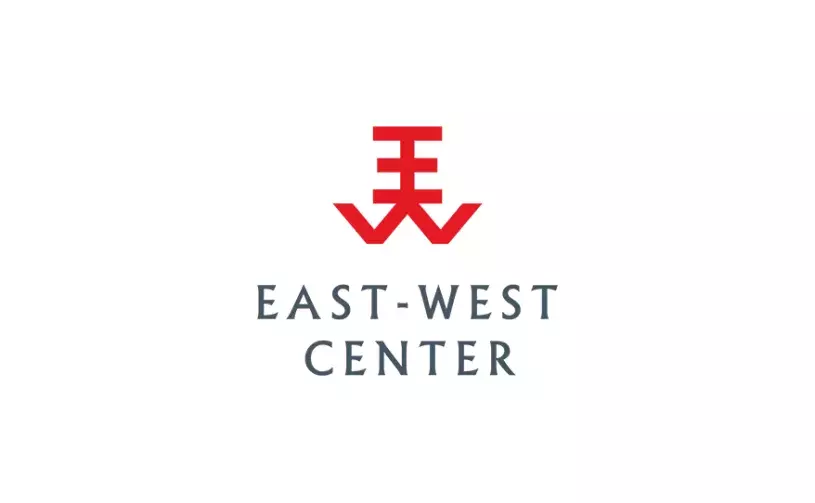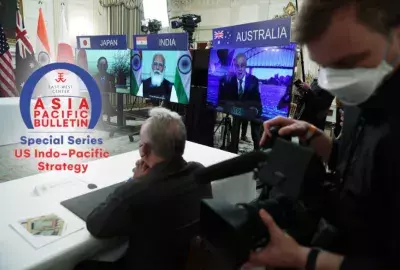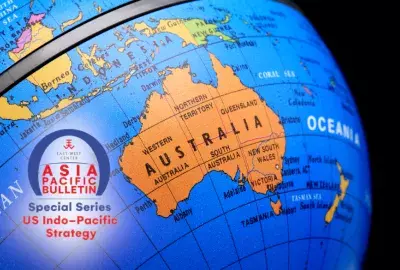Error message

|
Peter Valente and Matthew Sullivan, Programs Coordinator and Projects Coordinator at the East-West Center in Washington, respectively, explain that “In any government where an executive or leader has an outsized function in that political system’s decision-making calculus, such as Cambodia, leaders often form personality cults or demonstrate that they are the primary if not singular source of national power.” |
Last year’s MS Westerdam cruise ship fiasco - in which 1,455 passengers and 802 crew were turned away from five different ports before being welcomed by Cambodia - raised many questions regarding how governments and the international community can improve their responses to global health crises. It also offers a window into the Cambodian government’s response to a global health crisis in the context of an important bilateral relationship — U.S.-Cambodia relations. Shortly after 700 new passengers boarded the Westerdam in Hong Kong on February 1 the cruise ship found itself stranded in the Indian and Pacific oceans ping-ponging between Japan, Guam, the Philippines, and Thailand until February 13, when Cambodian Prime Minister Hun Sen allowed the Westerdam to dock in Sihanoukville, Cambodia. The incident serves as an interesting window into how domestic regime security considerations combined with mixed motives in international relations influenced Cambodian decision making.
One of the more bizarre facets of the Westerdam’s story was the in-person, relatively unprotected meet-and-greet between the Westerdam’s passengers and the Cambodian prime minister immediately after docking and amidst a global health crisis over the highly contagious COVID-19 virus. There has been much speculation by the media on the motivations of Cambodia’s decision and the prime minister’s personal welcome. Some of the various theories appearing in Western media include: diplomatic motives toward home countries of the passengers and crew (particularly the United States), Chinese political influence causing Cambodia to play down the dangers of COVID, or some combination of domestic and international politics.
While none of the explanations covering this case study are particularly implausible, and possibly some combination of factors existed, the most important explanatory factor for Cambodia’s behavior during the pandemic was Cambodia’s need for regime security. That is to say, Hun Sen, Cambodia’s prime minister and political strongman since 1985, saw a chance to publicly show political strength and bravado in the face of a crisis while simultaneously gaining a bargaining chip with larger powers like the United States and China.
In any government where an executive or leader has an outsized function in that political system’s decision-making calculus, such as Cambodia, leaders often form personality cults or demonstrate that they are the primary if not singular source of national power. A recent article from the Carnegie Endowment for International Peace observed several authoritarian governments’ behaviors and how effective responses to the pandemic were often hampered by disorganization, inefficient dissemination of information, and regime insecurity. Hun Sen’s regime has significantly restricted civil society, free speech, and other political freedoms as well as allegedly committing human rights violations, all of which indicate low tolerance of political dissent.
When a passenger tested positive for COVID-19 in Malaysia, Hun Sen declared, “The irresponsibility of some foreigners on the health test of Westerdam passengers makes Cambodia the victim of its humanitarian work…If I were the Malaysian prime minister, I would remove the health minister for being neglectful and irresponsible.” These high-profile remarks dismissing the dangers of COVID-19 indicate the prioritization of confidence in the political status quo rather than effective response to containing and isolating the global pandemic. Although catering to a Chinese audience may have been a goal of Cambodian foreign policy, these personal statements from Hun Sen also fit the profile of an insecure and eccentric authoritarian leader willing to downplay the public danger of COVID-19 felt across the region for the purposes of projecting a strong and in-control political image.
Moreover, there was nothing low-key about the disembarking of the Westerdam passengers in Sihanoukville, Cambodia. International media coverage throughout February 2020 used photographs of an unmasked Hun Sen posing in Sihanoukville next to the Westerdam, handing out flowers, and shaking hands with joyful disembarking passengers. Local Cambodian media sources often highlighted praise from the international community and the regime’s ‘humanitarianism’ in accepting the ship. The significant publicity accompanying the welcoming of the Westerdam indicates a push to depict the Cambodian PM as a great leader and humanitarian, thus shifting the narrative marred by negative coverage of Cambodia’s governance and human rights issues.
Hun Sen’s prioritization of regime security manifests itself in Cambodia's foreign policy and may affect U.S.-Cambodian relations. As one U.S. State Department official recently indicated in an interview, diplomacy with the regime can be “unpredictable”. In November 2019, the Trump administration sent the Cambodian leader a letter looking for some sort of soft-reset or entente in relations. Hun Sen’s response took an amicable tone, agreeing that democratic values were worth pursuing, and that friendship with the United States could be possible on the condition that Washington not advocate for regime change: “I am reassured by your explicit statement whereby you seek genuine engagement to pursue democracy, individual liberty and the rule of law rather than through regime change.” However, the core interest of the Cambodian administration - regime security - seems to trump all other foreign policy priorities and may be partially responsible for Cambodia’s lean toward China and its authoritarian-friendly Belt-and-Road strategy in recent decades.
In recent months, many commentators have urged the administration to maintain a strong human-rights stance in U.S. foreign policy towards Asia and the Pacific, particularly in the context of competing with Chinese authoritarianism and its human-rights violations. A strong U.S. stance on human-rights could indeed help Washington present Indo-Pacific governments more palatable alternatives to China’s militarization and influence in the region. Moreover, disregarding traditional U.S. democratic values could send the wrong signal to other democratic partners in the region degrading Washington’s credibility and ultimately benefiting Beijing’s disinformation and influencing campaigns.
On the other hand, it also may be risky for the new U.S. administration to stand too strongly on principle in Southeast Asia if Washington is hoping to maintain political capital and avoid a regional pendulum swing toward China. If Southeast Asian regimes look to the new U.S. administration and see only the stick of admonition without constructive engagement, then Cambodian leaders may alternatively seek the carrot of Chinese no-strings-attached Belt-and-Road engagement. Likewise, other regional partners, even close allies like Japan, have at times shown reservation in taking more punitive actions against non-democratic regional regimes. The East-West Center’s 2020 U.S. Presidential Election report surveying Indo-Pacific attitudes towards U.S. foreign policy in the region indicated that partners such as India and Vietnam maintained some apprehensions about an overly-human-rights-focused U.S. foreign policy.
There may be some signs for openings for further relationship-building between the United States and Cambodia. Last year, Cambodia was first among all ASEAN countries to confirm attendance at the planned U.S.-ASEAN summit in Las Vegas (cancelled due to the pandemic). Nonetheless, given the realities of Cambodia’s regime and its prioritization of regime security, even over global health, the U.S. will ultimately need to carefully and pragmatically calculate the costs and benefits of using carrots versus sticks in future U.S.-Cambodia engagement.
|
Peter Valente and Matthew Sullivan, Programs Coordinator and Projects Coordinator at the East-West Center in Washington, respectively, explain that “In any government where an executive or leader has an outsized function in that political system’s decision-making calculus, such as Cambodia, leaders often form personality cults or demonstrate that they are the primary if not singular source of national power.” |
Last year’s MS Westerdam cruise ship fiasco - in which 1,455 passengers and 802 crew were turned away from five different ports before being welcomed by Cambodia - raised many questions regarding how governments and the international community can improve their responses to global health crises. It also offers a window into the Cambodian government’s response to a global health crisis in the context of an important bilateral relationship — U.S.-Cambodia relations. Shortly after 700 new passengers boarded the Westerdam in Hong Kong on February 1 the cruise ship found itself stranded in the Indian and Pacific oceans ping-ponging between Japan, Guam, the Philippines, and Thailand until February 13, when Cambodian Prime Minister Hun Sen allowed the Westerdam to dock in Sihanoukville, Cambodia. The incident serves as an interesting window into how domestic regime security considerations combined with mixed motives in international relations influenced Cambodian decision making.
One of the more bizarre facets of the Westerdam’s story was the in-person, relatively unprotected meet-and-greet between the Westerdam’s passengers and the Cambodian prime minister immediately after docking and amidst a global health crisis over the highly contagious COVID-19 virus. There has been much speculation by the media on the motivations of Cambodia’s decision and the prime minister’s personal welcome. Some of the various theories appearing in Western media include: diplomatic motives toward home countries of the passengers and crew (particularly the United States), Chinese political influence causing Cambodia to play down the dangers of COVID, or some combination of domestic and international politics.
While none of the explanations covering this case study are particularly implausible, and possibly some combination of factors existed, the most important explanatory factor for Cambodia’s behavior during the pandemic was Cambodia’s need for regime security. That is to say, Hun Sen, Cambodia’s prime minister and political strongman since 1985, saw a chance to publicly show political strength and bravado in the face of a crisis while simultaneously gaining a bargaining chip with larger powers like the United States and China.
In any government where an executive or leader has an outsized function in that political system’s decision-making calculus, such as Cambodia, leaders often form personality cults or demonstrate that they are the primary if not singular source of national power. A recent article from the Carnegie Endowment for International Peace observed several authoritarian governments’ behaviors and how effective responses to the pandemic were often hampered by disorganization, inefficient dissemination of information, and regime insecurity. Hun Sen’s regime has significantly restricted civil society, free speech, and other political freedoms as well as allegedly committing human rights violations, all of which indicate low tolerance of political dissent.
When a passenger tested positive for COVID-19 in Malaysia, Hun Sen declared, “The irresponsibility of some foreigners on the health test of Westerdam passengers makes Cambodia the victim of its humanitarian work…If I were the Malaysian prime minister, I would remove the health minister for being neglectful and irresponsible.” These high-profile remarks dismissing the dangers of COVID-19 indicate the prioritization of confidence in the political status quo rather than effective response to containing and isolating the global pandemic. Although catering to a Chinese audience may have been a goal of Cambodian foreign policy, these personal statements from Hun Sen also fit the profile of an insecure and eccentric authoritarian leader willing to downplay the public danger of COVID-19 felt across the region for the purposes of projecting a strong and in-control political image.
Moreover, there was nothing low-key about the disembarking of the Westerdam passengers in Sihanoukville, Cambodia. International media coverage throughout February 2020 used photographs of an unmasked Hun Sen posing in Sihanoukville next to the Westerdam, handing out flowers, and shaking hands with joyful disembarking passengers. Local Cambodian media sources often highlighted praise from the international community and the regime’s ‘humanitarianism’ in accepting the ship. The significant publicity accompanying the welcoming of the Westerdam indicates a push to depict the Cambodian PM as a great leader and humanitarian, thus shifting the narrative marred by negative coverage of Cambodia’s governance and human rights issues.
Hun Sen’s prioritization of regime security manifests itself in Cambodia's foreign policy and may affect U.S.-Cambodian relations. As one U.S. State Department official recently indicated in an interview, diplomacy with the regime can be “unpredictable”. In November 2019, the Trump administration sent the Cambodian leader a letter looking for some sort of soft-reset or entente in relations. Hun Sen’s response took an amicable tone, agreeing that democratic values were worth pursuing, and that friendship with the United States could be possible on the condition that Washington not advocate for regime change: “I am reassured by your explicit statement whereby you seek genuine engagement to pursue democracy, individual liberty and the rule of law rather than through regime change.” However, the core interest of the Cambodian administration - regime security - seems to trump all other foreign policy priorities and may be partially responsible for Cambodia’s lean toward China and its authoritarian-friendly Belt-and-Road strategy in recent decades.
In recent months, many commentators have urged the administration to maintain a strong human-rights stance in U.S. foreign policy towards Asia and the Pacific, particularly in the context of competing with Chinese authoritarianism and its human-rights violations. A strong U.S. stance on human-rights could indeed help Washington present Indo-Pacific governments more palatable alternatives to China’s militarization and influence in the region. Moreover, disregarding traditional U.S. democratic values could send the wrong signal to other democratic partners in the region degrading Washington’s credibility and ultimately benefiting Beijing’s disinformation and influencing campaigns.
On the other hand, it also may be risky for the new U.S. administration to stand too strongly on principle in Southeast Asia if Washington is hoping to maintain political capital and avoid a regional pendulum swing toward China. If Southeast Asian regimes look to the new U.S. administration and see only the stick of admonition without constructive engagement, then Cambodian leaders may alternatively seek the carrot of Chinese no-strings-attached Belt-and-Road engagement. Likewise, other regional partners, even close allies like Japan, have at times shown reservation in taking more punitive actions against non-democratic regional regimes. The East-West Center’s 2020 U.S. Presidential Election report surveying Indo-Pacific attitudes towards U.S. foreign policy in the region indicated that partners such as India and Vietnam maintained some apprehensions about an overly-human-rights-focused U.S. foreign policy.
There may be some signs for openings for further relationship-building between the United States and Cambodia. Last year, Cambodia was first among all ASEAN countries to confirm attendance at the planned U.S.-ASEAN summit in Las Vegas (cancelled due to the pandemic). Nonetheless, given the realities of Cambodia’s regime and its prioritization of regime security, even over global health, the U.S. will ultimately need to carefully and pragmatically calculate the costs and benefits of using carrots versus sticks in future U.S.-Cambodia engagement.







